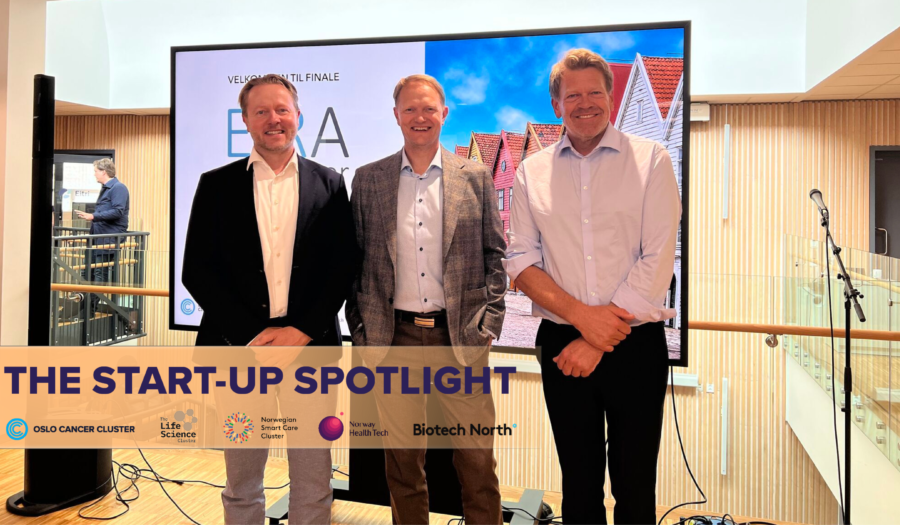
Spectrum Blue Protects Everything from Viking Ships to Spacecraft
The Norwegian company Spectrum Blue develops a unique solution that disinfects surfaces 24/7 against fungi, bacteria, viruses, and algae. Imagine the impact this could have on a new pandemic.
With increasing population density and a warmer, wetter climate, the risk of new pandemics rises. The COVID-19 pandemic brought significant disruptions to health systems, economies, and societies worldwide. Four years after the lockdown in Norway, we still remember how masks and hand sanitizers became a part of daily life and how quickly the virus spread. What if there was a protection that continuously reduced the risk of infection? "
Our solution, Q-FIELD™, is a preventive and proactive measure to prevent new major pandemics," says Brage Johansen, CEO of Spectrum Blue. The Q-FIELD™ product works 24/7, 365 days a year, if the surface is treated with it. For example, by mixing the product into indoor paint, walls, ceilings, and furniture get an inherent disinfection. Such a solution could have a huge impact on healthcare, where hospital infections and increasing antibiotic resistance are major challenges. "While traditional measures like masks, hand washing, and disinfection are important, they are not lasting. Q-FIELD™ is a photocatalytic substance that removes all viruses, fungi, and bacteria from the surface. It helps reduce the risk of infection while making cleaning more efficient and reducing chemical use," says Johansen.
From Romania to Norway
Over the past three years, Q-FIELD™ has been tested at a hospital in Romania with very good results; the number of hospital infections has been reduced by over 20%, and antibiotic use correspondingly.
Why Romania?
"The research behind the product comes from Romania," says Johansen. This is where the Norwegian founders got in touch with the inventor, who has researched the solution for a decade. "Together, we agreed to establish a company in Norway to further develop and commercialize the solution. The production of the product itself is an energy-intensive process, and in Norway, we have good access to affordable electricity. In addition, the core team is now based in Norway, and we are dedicated to building our production line here." The Norwegian company was established in 2022, and with a recently signed partnership with Dynea, they are well on their way with their first production line in Lillestrøm. The initial market entry will be through paint manufacturers, and with an agreement in place with a major Norwegian paint manufacturer, they are now looking towards the rest of Europe.

Parallel to this, the company is collaborating with WHO on preparedness against new pandemics. "This is extremely important work, and we will be doing a lot of testing going forward to verify that the technology slows the spread of new viruses and fungi," Johansen continues.
A Major Commercial Opportunity
But what does this have to do with Viking ships and spacecraft?
"We have recently signed a letter of intent with the Viking Museum in Bygdøy, as well as with NASA and the European Space Agency," explains Johansen. At the Viking Museum, they want to test Q-FIELD™ in the building to better protect the irreplaceable cultural artifacts against fungi. It is also important for NASA to protect those traveling into space against bacteria and virus outbreaks. Initially, pilot projects will be set up to verify the technology against the needs of the various institutions before scaling up.
The market is enormous, and billions are spent globally on products with biocides that kill unwanted microorganisms. However, biocides can have environmentally harmful effects, which both the EU and other countries are now imposing stricter regulations on. "Our product is sustainable and has no harmful effect on the environment or people," Johansen concludes. "In addition, there are limited good preventive measures against mold, which we know can have a huge impact on indoor climate and people. Our technology is unique in this regard."
For more information about the company and the product, visit the company's website or contact CEO Brage Johansen. Spectrum Blue is always interested in connecting with good strategic partners who want to join the journey.




